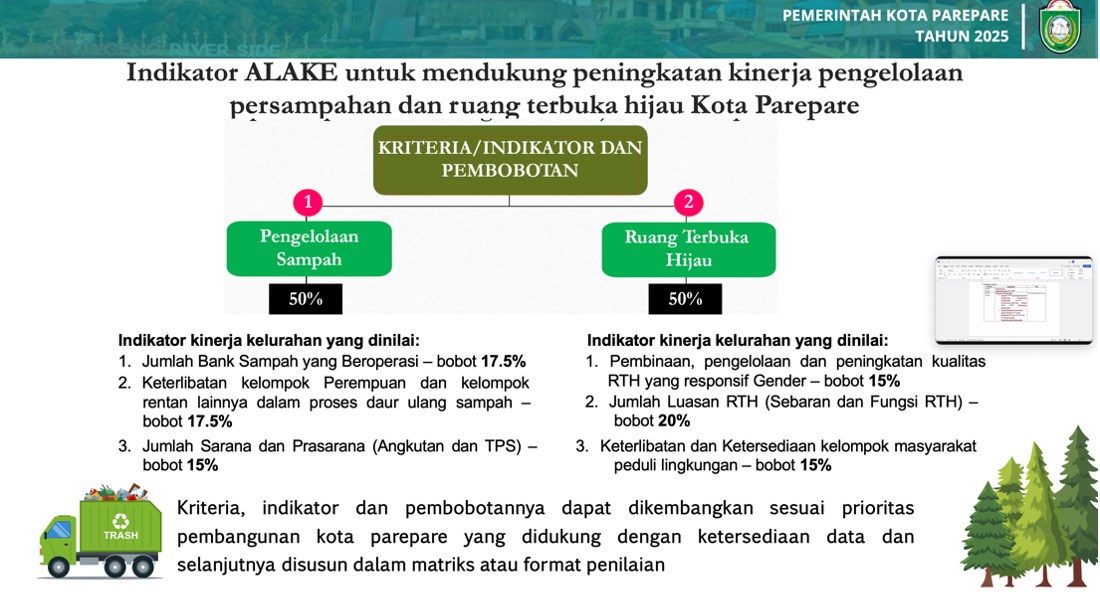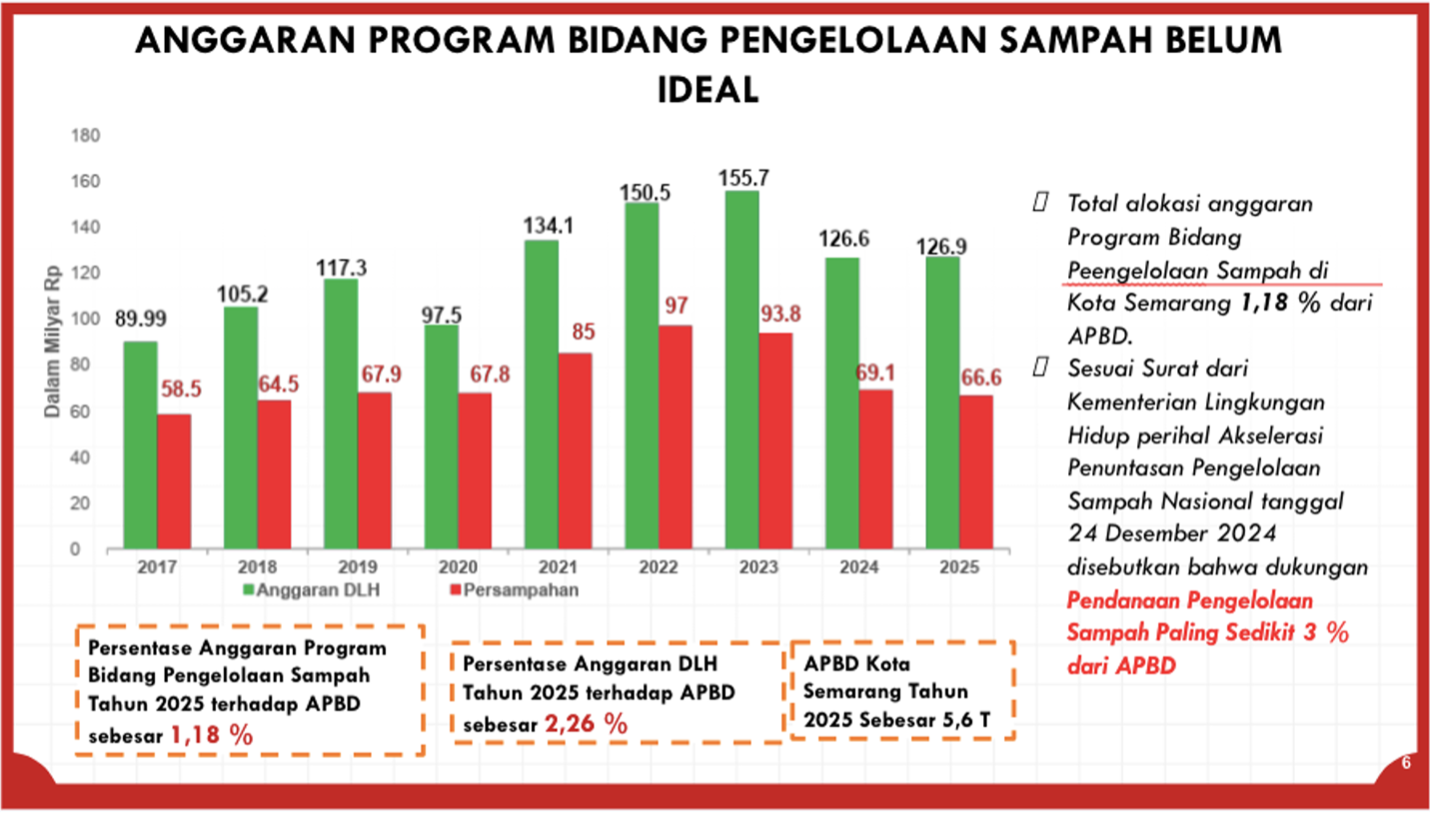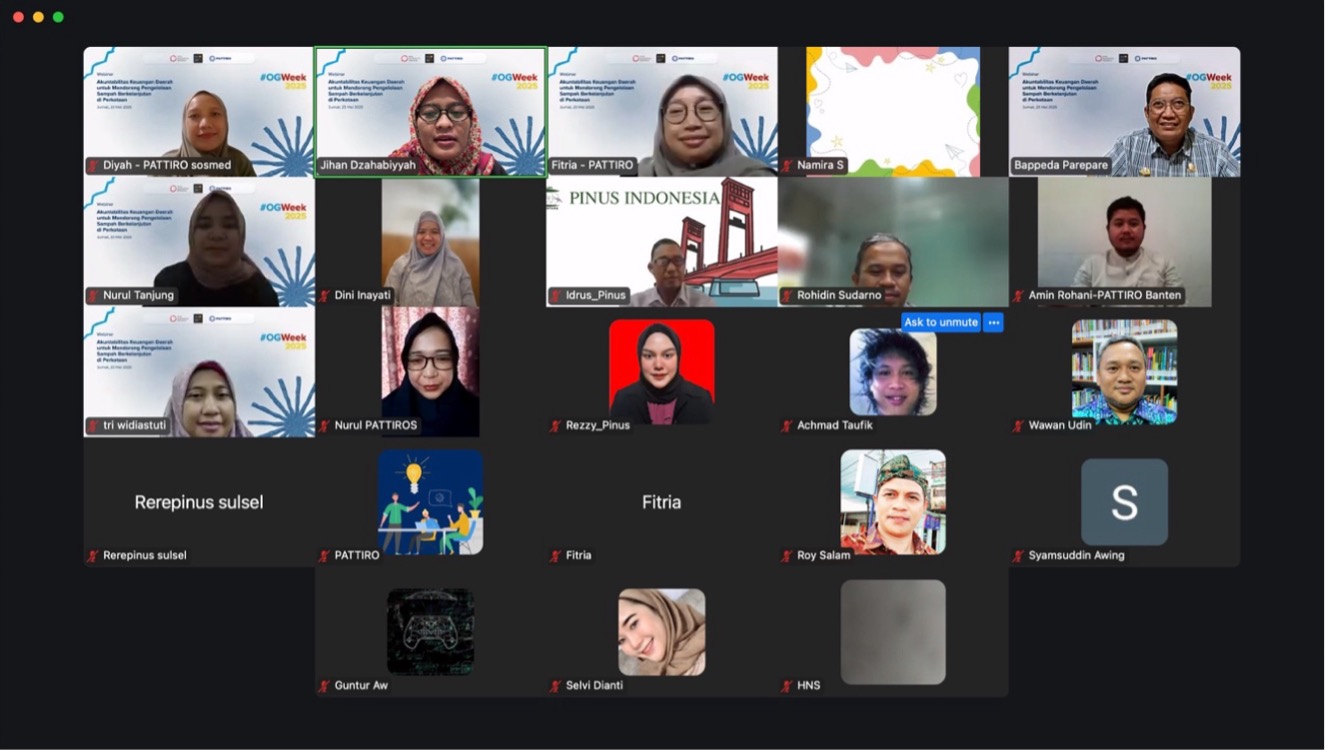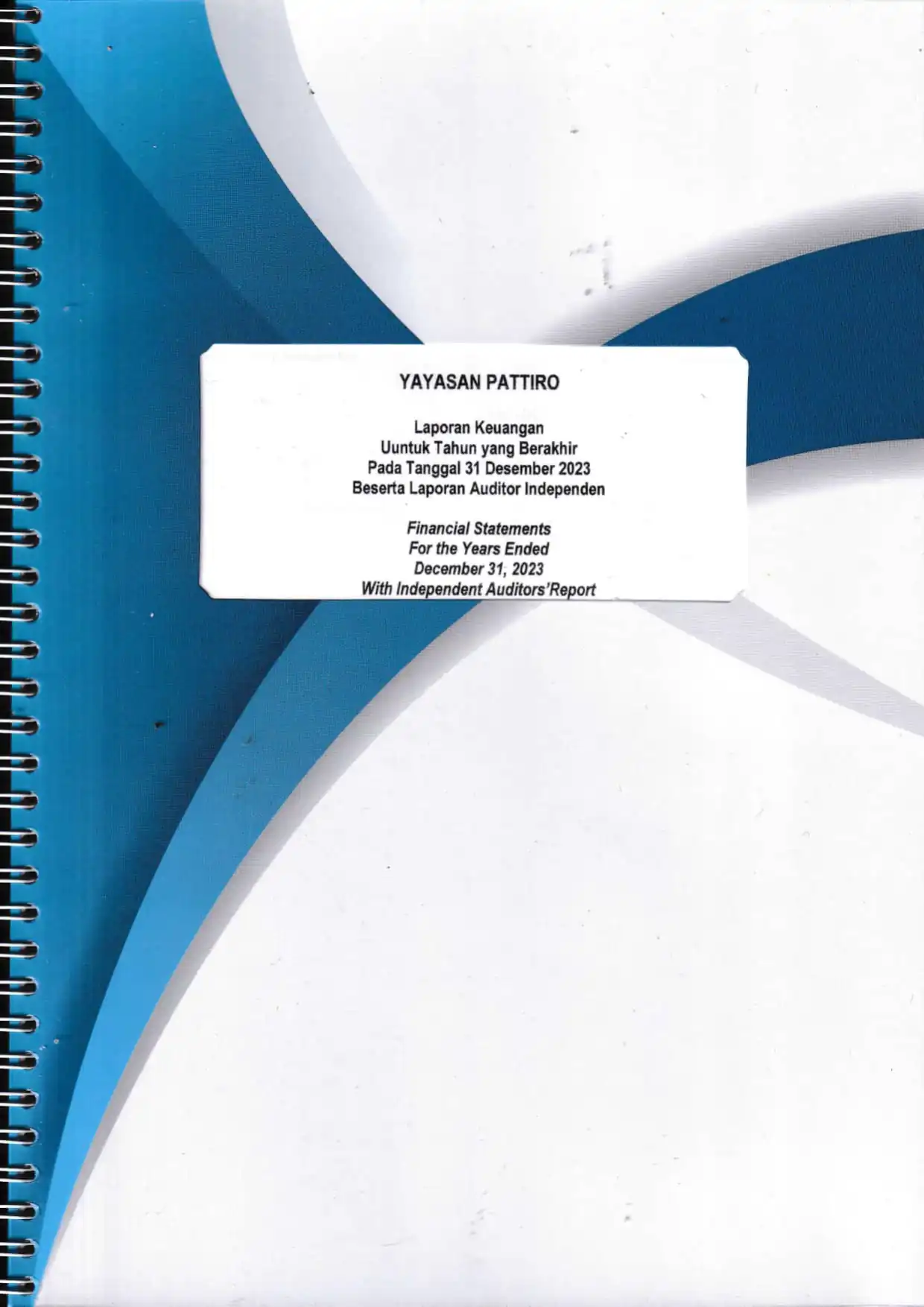Jakarta, May 23, 2025 — In commemoration of Open Government Week 2025, the Center for Regional Studies and Information (PATTIRO) held a webinar themed “Regional Financial Accountability to Promote Sustainable Urban Waste Management.” The event featured three speakers: Zulkarnaen Nasrun, Head of the Parepare City Development Planning Agency (Bappeda); Dini Inayati, a member of the Semarang City Regional House of Representatives (DPRD); and Nurul Fitralaila Tanjung, Program Officer at PATTIRO. The discussion focused on financing challenges and the minimal budget allocation for waste management at the regional level, averaging below 2% of the total Regional Budget (APBD), as well as the importance of fiscal innovation and community collaboration as long-term solutions.
Fitria, Executive Director of PATTIRO, opened and moderated the discussion. She stated that the government’s commitment to waste management is evident, for example, through the 2025–2029 National Medium-Term Development Plan (RPJMN), which prioritizes waste issues due to increasing waste volumes caused by population growth, limited infrastructure, and funding constraints. One innovative approach highlighted was the ALAKE (Ecologically Based Sub-District Budget Allocation) scheme, successfully implemented in Parepare, South Sulawesi.
ALAKE is a mechanism that provides fiscal incentives to sub-districts demonstrating good performance in environmental management. This model combines technology, regulation, and public participation to create a more efficient and sustainable waste management system. Parepare was cited as an example because it successfully developed performance indicators consisting of two main aspects: waste management and green open spaces, each weighted at 50%.
The waste management indicators include the number of active waste banks, the participation of women’s and vulnerable groups in recycling, and the availability of facilities and infrastructure. Meanwhile, the green open space indicators cover gender-responsive green open space management and the involvement of environmentally conscious communities. This shows that Parepare’s ALAKE indicators not only strengthen environmental issues but also reinforce gender issues.

In addition to ALAKE, Parepare has initiated various other innovations such as the 3R (Reduce, Reuse, Recycle) slogan, “LACAK DLH” (Cleanliness Call Service), and “JET-STAR” (No Doubt Waste Pick-up). These programs strengthen community involvement, particularly of women and universities through thematic community service programs (KKN). As a result, the city’s waste management performance reached 63.67%, higher than the provincial average. Innovation also brought economic benefits, such as the utilization of plastic waste into paving blocks and flower pots for city parks. The JET-STAR team also assists with waste collection in narrow areas, encourages residents to sort waste from the start, and increases environmental awareness with support from local figures like sub-district heads and community leaders (RT/RW chairpersons).
Zulkarnaen Nasrun explained that the sustainability of the ALAKE program is guaranteed through its integration into the Regional Medium-Term Development Plan (RPJMD) and cooperation with the Directorate General of Fiscal Balance. This ensures continuity despite changes in regional leadership.
On the other hand, Semarang City faces serious challenges in waste management, with daily waste generation reaching 1,200 tons, mostly wet organic waste. This condition is exacerbated by limited transport fleets and a landfill capacity that has exceeded its limit. Furthermore, the budget allocation for the waste management sector is still inadequate.

Based on the data above, despite a general increase in the environmental sector budget, the portion allocated for waste management is still far from the central government’s established standards. Currently, this budget is only 1.18% of the total APBD, well below the recommended minimum of 3%. This indicates the need for increased budget prioritization and stronger fiscal commitment to ensure optimal and sustainable waste management.
Dini Inayati, a member of the Semarang City DPRD, stated that the legislative body is pushing for a revision of the Regional Regulation on Waste Management. The goal is to build an integrated system from upstream to downstream, prioritizing community participation, the use of appropriate technology, and infrastructure strengthening. One long-term solution being explored is Waste-to-Energy Power Plants (PLTSa), although it still faces significant challenges, such as a tipping fee reaching Rp200 billion per year. The success of Parepare City inspires Semarang to consider adopting the ALAKE scheme, which is based on ecological incentives.
“Parepare City’s success encourages us to consider implementing the ALAKE scheme in Semarang as an effort to replicate an ecologically-based incentive strategy,” said Dini Inayati.
Nurul Tanjung, Program Officer at PATTIRO, emphasized the importance of implementing the Ecological Fiscal Transfer (EFT) scheme, a budgeting mechanism that integrates environmental preservation with fiscal policy. EFT is divided into four levels: TANE, TAPE, TAKE, and ALAKE, and has been implemented in 44 regional governments, covering over 1,700 villages and sub-districts across Indonesia. However, its long-term implementation is often disrupted by political dynamics. Therefore, integrating EFT into medium-term planning documents like RPJMD and strengthening regulations are urgent strategic steps.
Concluding the discussion, all speakers agreed that a paradigm shift is needed: waste should no longer be viewed as a burden, but rather as an economic resource and a social-environmental investment. Through innovative fiscal approaches, sustained political support, and active community involvement, sustainable waste management is no longer just a discourse but can truly be realized.
Author: Nurul Fitralaila Tanjung (Program Officer PATTIRO)





